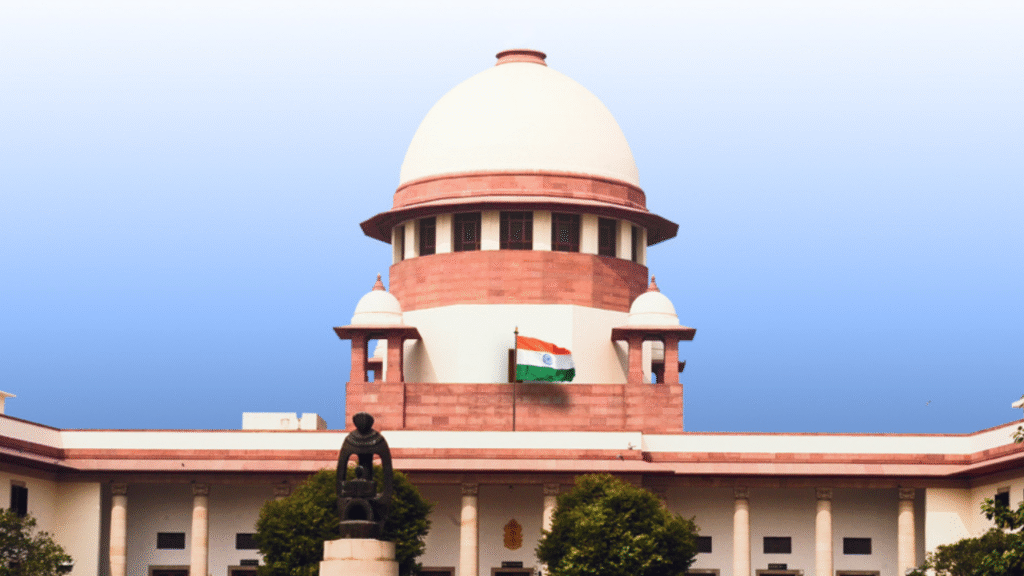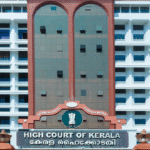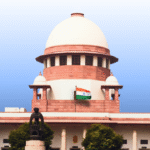This note summarizes the Supreme Court of India’s order dated August 4, 2025, in Contempt Petition (Civil) Diary No. 16629/2025, filed by K.L.J.A. Kiran Babu against the Karnataka State Bar Council. The petition was moved on the premise that directions issued by the Court in Writ Petition (Civil) No. 352 of 2023 regarding enrolment fees were not being complied with.
Background and Previous Directives:
The Supreme Court’s order follows up on its judgment dated July 30, 2024, in W.P. (C) No. 352 of 2023, titled Gaurav Kumar v. Union of India.
Paragraph 109 of the Gaurav Kumar judgment specifically concluded the following regarding enrolment fees:
State Bar Councils (SBCs) cannot charge “enrolment fees” beyond the express legal stipulation under Section 24(1)(f) [4a, 13a].
SBCs and the Bar Council of India (BCI) cannot demand payment of fees other than the stipulated enrolment fee and stamp duty as a pre-condition to enrolment [4b, 13b].
Charging fees and charges in excess of Section 24(1)(f) violates Article 14 and Article 19(1)(g) of the Constitution [5c, 13c].
This decision has prospective effect, meaning SBCs are not required to refund excess enrolment fees collected before the judgment date [5d, 14].
Bar Council of India’s (BCI) Response and Actions:
The BCI, through its Additional Secretary Awanish Kumar Pandey, filed an affidavit stating its compliance efforts.
Following the Gaurav Kumar judgment, the BCI issued a detailed communication (No. BCI:D:4088/2024) on August 6, 2024, directing all State Bar Councils to strictly proceed with candidate enrolment in light of the judgment.
Initially, the BCI believed all State Bar Councils were adhering to the judgment.
Upon receiving the present contempt petition order dated July 15, 2025, which specifically directed Mr. Manan Kumar Mishra (Chairman, BCI) to assist the Court, the BCI promptly issued another letter (No. BCI:D:5397/2025) on July 23, 2025. This letter directed all SBCs to furnish details regarding the fees collected or charged at the time of enrolment within three days.
Reported Fee Structures by State Bar Councils:
In response to the BCI’s letter, most State Bar Councils, including Chhattisgarh, MP, Delhi, Punjab and Haryana, Maharashtra & Goa, Assam, Nagaland, Mizoram, Arunachal Pradesh and Sikkim, Meghalaya, Tamil Nadu and Puducherry, Gujarat, Rajasthan, Telangana, Uttar Pradesh, Andhra Pradesh, Jharkhand, Odisha, Uttarakhand, Bihar, Manipur, Kerala, West Bengal, and Tripura, reported collecting Rs. 750/- for General/OBC candidates (Rs. 600 SBC + Rs. 150 BCI) and Rs. 125/- for SC/ST candidates (Rs. 100 SBC + Rs. 25 BCI). These councils affirmed full compliance and reported no additional fees.
Himachal Pradesh also collects the standard fees but additionally collects Rule-40 Advocates’ Welfare Fund fee at the time of enrolment.
Karnataka State Bar Council reported collecting the standard fees but additionally collects optional fees totalling ₹6,800 for items like ID cards, certificates, welfare fund, and training.
Jammu & Kashmir charges higher fees (Rs. 900 for General/OBC and Rs. 450 for SC/ST), which are collected by the High Court of Jammu and Kashmir and Ladakh.
Supreme Court’s Ruling on “Optional” Fees:
The contempt petitioner, K.L.J.A. Kiran Babu, pointed out that the Karnataka State Bar Council was charging amounts (specifically Rs. 6800/- mentioned in the BCI affidavit) over and above the statutory fees.
Mr. Manan Kumar Mishra, representing the BCI, stated that these additional charges were “optional and not mandatory”.
However, the Supreme Court categorically rejected this explanation, stating, “there is nothing like optional“.
The Court explicitly directed that no State Bar Council(s) or the Bar Council of India shall collect any fees of any amount as optional. They must strictly collect fees in accordance with the directions issued in the main judgment.
The Court further clarified that if the Karnataka State Bar Council is collecting any amount in the name of optional, it must be stopped.
Conclusion of the Contempt Petition:
The Supreme Court closed the contempt petition with these observations. The BCI reaffirmed its commitment to comply with the judgment in both letter and spirit and stated it would continue to monitor compliance.


